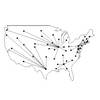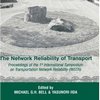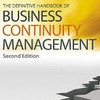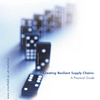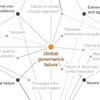Remember my previous post on Online Journals – curse or blessing? Here’s another take on the issue of online scholarly research: Google Scholar. In Is Google Scholar Truely Scholarly?, on the Black Belt Librarian blog, there is a reference to study published in the May 2009 issue of College & Research Libraries that investigates how Google Scholar compares to library databases. As it turns out, Google Scholar is on average 17.6 percent more scholarly than materials found only in library databases. D’oh! So should you switch to Google Scholar?
Google Scholar
Google Scholar (GS) was released as a beta product in November of 2004. Since then, Google Scholar has been scrutinized and questioned by many in academia and the library field, particularly regarding the breadth and scope of available content, but is it really so un-scholarly as many say? Most scholars consider books and journal articles better sources than websites, but Google Scholar can help unearth websites with scholarly content.
The study
Comparing typical library and database searches with equivalent Google Scholar search strings, the authors found that
the mean scholarliness score of citations found only in GS was 17.6% higher than the score for citations found only in licensed library databases. In fact, across all but one of the tested disciplines, citations found only in GS had a higher average scholarliness score than citations found only in licensed library databases.
That is truly interesting, and they continue to make an argument for why GS is superior, despite the fact that a search on GS generates too many and also many irrelevant hits, compared to a library database:
The power of ordering results by relevancy, combined with the fact that very few people ever go beyond the first page of results, creates a searcher-imposed higher level of precision for any search engine. This is particularly true of GS, where the most relevant and more scholarly, material floats to the top of the list, while the less precise material falls to the bottom, where it is rarely seen. Hit counts are of secondary importance in a GS search; the key to GS’s success is relevancy ranking and a large universe of information.
True, I seldom go beyond page one or two, or maybe three, in my searches. What is beyond page one is seldom worth looking at.
My verdict
Based on my own uses of Google Scholar I can only agree with the authors when they say that Google Scholar is generally superior to individual databases in retrieving appropriate citations. That said, to them and even to me,
Google Scholar is simply a discovery tool for finding scholarly information while databases still perform the function of providing access to the content unearthed by a GS search.
So, I go to Google Scholar for my search, and then I return to my library database to retrieve the actual document. I’m lucky enough to be blessed with a library that has electronic access to almost every journal in my field, or they will order whichever article I desire, free of charge. After all, Google Scholar is not going to make me stupid, but Google may make me stupid, as David Carr says.
Reference
Jared L. Howland, Thomas C. Wright, Rebecca A. Boughan, & Brian C. Roberts (2009). How Scholarly Is Google Scholar? A Comparison to Library Databases College and Research Libraries, 70 (3)
Links
- College and Research Libraries – Issue May 2009
- Preprint – How Scholarly Is Google Scholar?


